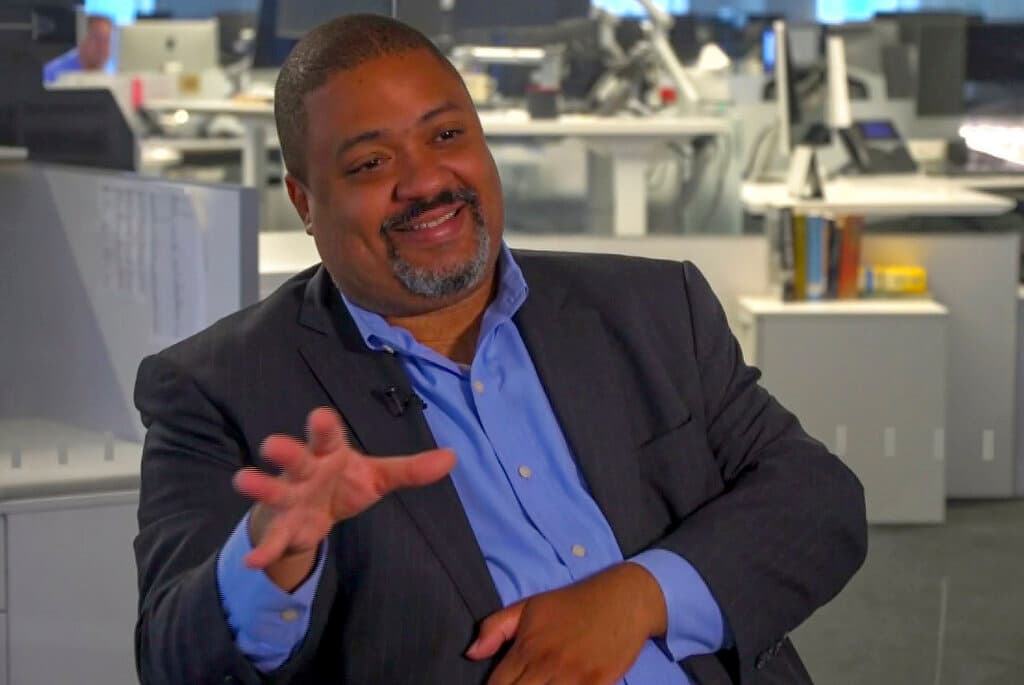Bragg-adocio
As a candidate, did the New York County district attorney breach the ethics of his office by vowing to prosecute President Trump?

It’s telling that the reported indictment of President Trump by the New York County district attorney, Alvin Bragg, is raising more questions about the propriety of the prosecution than about the alleged misdeeds alleged in respect of the former president — as objectionable as they may be under the law. Chief among the concerns is that as a candidate for office, Mr. Bragg breached the ethics of his office by vowing to prosecute Mr. Trump.
As one scholar of prosecutorial misconduct, Bennett Gershman, has observed, prosecutors have, when it comes to cases their office might prosecute, a “duty of silence.” The duty meant, writes Mr. Gershman, that “when a prosecutor comments about specific cases, discusses the evidence and the defendant’s character, and offers opinions” on “the defendant’s guilt, the prosecutor crosses the line.”
This is particularly important when a prosecutor is running for office, Mr. Gershman writes. He concedes that candidates have every right to engage in “speech on matters of public concern.” Yet “when a prosecutor speaks in the role of an advocate, and makes statements about current prosecutions, such statements have the capacity to prejudice future criminal proceedings.” In such matters, he said, “a prosecutor has to be most careful.”
“Except for limited facts about a case,” Mr. Gershman concludes, “a prosecutor as a general rule has a duty to refrain from speaking.” Mr. Bragg appears not to have gotten the memo. When Mr. Bragg was running for district attorney, he sought to win over the voters in the Democratic primary by boasting of his prior efforts, while working in the state Attorney General’s office, to hale Mr. Trump — and his family — into court.
“I have investigated Trump and his children and held them accountable for their misconduct with the Trump Foundation,” the Daily Mail quotes Mr. Bragg as crowing during a candidate forum late in 2020. He sought to assure Democratic primary voters that “I know how to follow the facts and hold people in power accountable.” He stressed that “it is a fact that I have sued Trump more than a hundred times.”
Mr. Bragg explained that he had sought to punish Mr. Trump and his family for “using the nonprofit” as a “personal checkbook,” CBS News said. He called it “important work,” saying it was “separate from anything that the D.A.’s office may be looking at now.” What about potential concerns that Mr. Bragg’s efforts would be seen to suggest bias against Mr Trump, he was asked? “I can’t change that fact,” Mr. Bragg averred, “nor would I.”
He assured voters of his commitment and ability to pursue the fraud case against Mr. Trump, CBS reported. “I want to emphasize and underscore the significance of the conduct, and my professional ability and experience doing that type of investigation.” Mr. Bragg said he was struck by the “staggering” number of investigations pending against Mr. Trump, especially the “matter involving Trump’s former ‘fixer,’ Michael Cohen.”
Mr. Bragg “had followed media coverage of Cohen’s federal case,” CBS reported. From these press accounts, he learned prosecutors “had a charging instrument where apparently the president was Individual-1, right?” Mr. Bragg added: “Presumably, the evidence is there. And if it’s a matter of, kind of, prosecutorial discretion, I mean, if they’ve already said it in a charging instrument. So I presume it could be, you know, accurate and charge ready.”
“Between the private life of the citizen and the public glare of criminal accusation stands the prosecutor,” Justice William Brennan has observed, with “the power to employ the full machinery of the state” against an individual. This explains why “a prosecutor is forbidden to permit personal or political interests to affect his prosecutorial conduct,” Mr. Gershman writes, “nor should a prosecutor make a campaign pledge to prosecute a certain case.”

